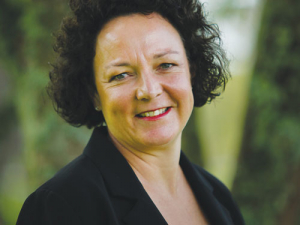It is often driven by their governments.
“They are looking to increase their own self sufficiency and in some places there are growing middle classes,” Waikato-based Marcroft told Dairy News.
“Led by governments, people are seeing more could be done to increase the productivity of their farms.
“They might have a lot of farms. But they are not producing much milk or there’s not much milk going into the formal supply channels.”
Corporates too are recognising opportunities to establish farms in places where historically large commercial farms have not existed.
“Many places are quite fertile; there is water available in places like Tanzania and Kenya,” says Marcroft. “There is no reason they can’t have sustainable, profitable, productive farms there with some outside help from NZ.”
Agritech is products, technologies and services used onfarm to help the farmers become more productive, sustainable and profitable. Most opportunities for NZ companies are in the livestock sector.
Central and South America, parts of South East Asia, parts of the Middle East, Turkey and East Africa are markets where some agritech companies which Marcroft works with are looking at projects and opportunities.
“The Turkish government has identified farming, food and agriculture as one of its key priority sectors,” she explains. “In these markets you see a small number of very large farms and then you have lots of small farms.”
Opportunity exists in both types of farms, she says. Private agritech companies trying to enter emerging markets tend to target those larger corporate farms.
“In Turkey there is a large farm of 330,000ha with thousands of dairy cattle,” Marcroft says. “They have spoken to one of my colleagues in Turkey about increasing the productivity of their dairy cattle. They have asked if there is anyone in NZ who can help them do it.
“I have a company that will be visiting Turkey to meet with this Turkish entity – a bit like our Landcorp – next month to have a look at that opportunity.”
On the flip side in East Africa she helps companies working with organisations who have funding from the Gates Foundation.
“They are looking to support smaller farmers and help smaller farmers produce more milk and support better lifestyles for those farming families – more milk but also better quality milk,” she says.
“This opportunity is working through a philanthropic organisation which is supporting these million dollar projects lasting several years.
“There is the opportunity to sell products into these markets such as the stainless steel for milking, electric fencing, scales and feedout wagons.”
But opportunity also exists for know-how and services which could include onfarm audits -- the type of work AsureQuality does.
“The quality of the milk in NZ is exceptional,” says Marcroft. “We have good systems to support the production of that high quality milk, whereas in a lot of these emerging markets the quality of their milk isn’t anywhere near the standard in NZ.
“So there is the opportunity for us to do things like audits on farms to understand what is going on and give recommendations on how that quality might be improved.”
NZ enterprises can also help train farmers.
“Fonterra does a lot in Sri Lanka, spending time trying to understand how their farming systems work and putting together training to help overcome the barriers they have with their climates, labour or animal husbandry techniques.”
Finding people to work on our NZ farms can be a challenge at times, she says.
“We can bring in people from some of these markets where they can learn how to do better and then take that knowledge back to their homes. While here they can do courses through Taratahi, Massey or Lincoln.”
















